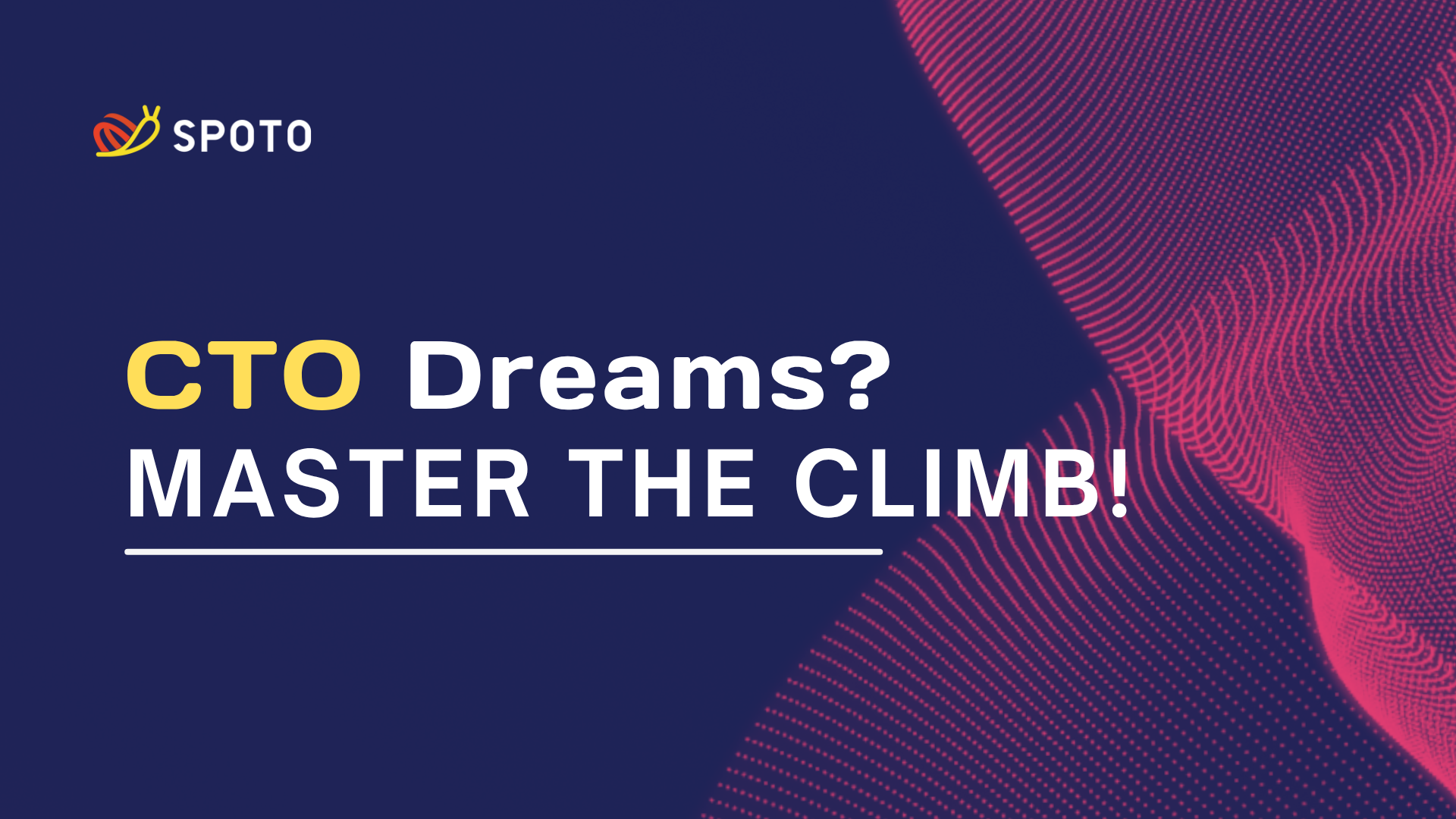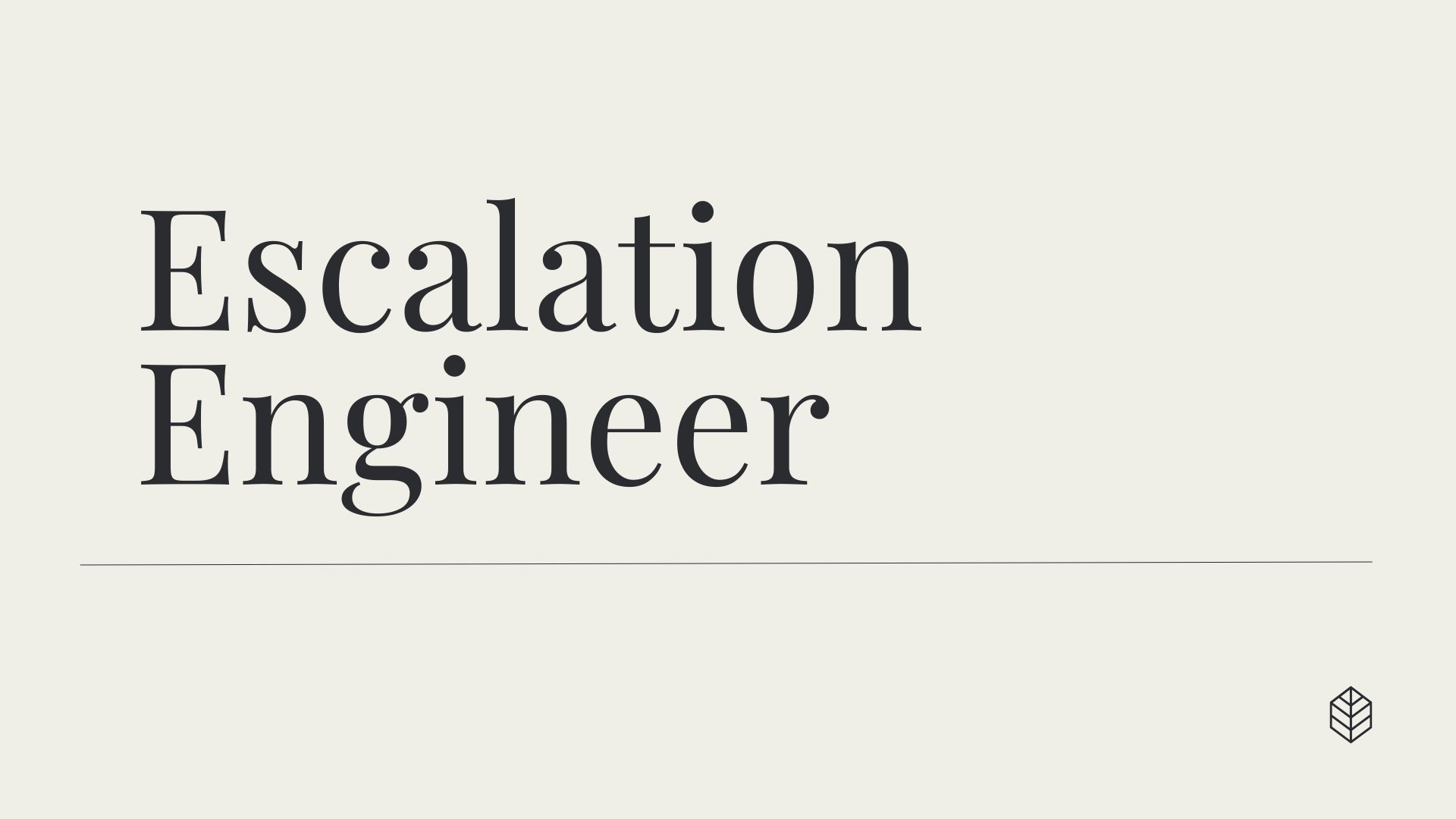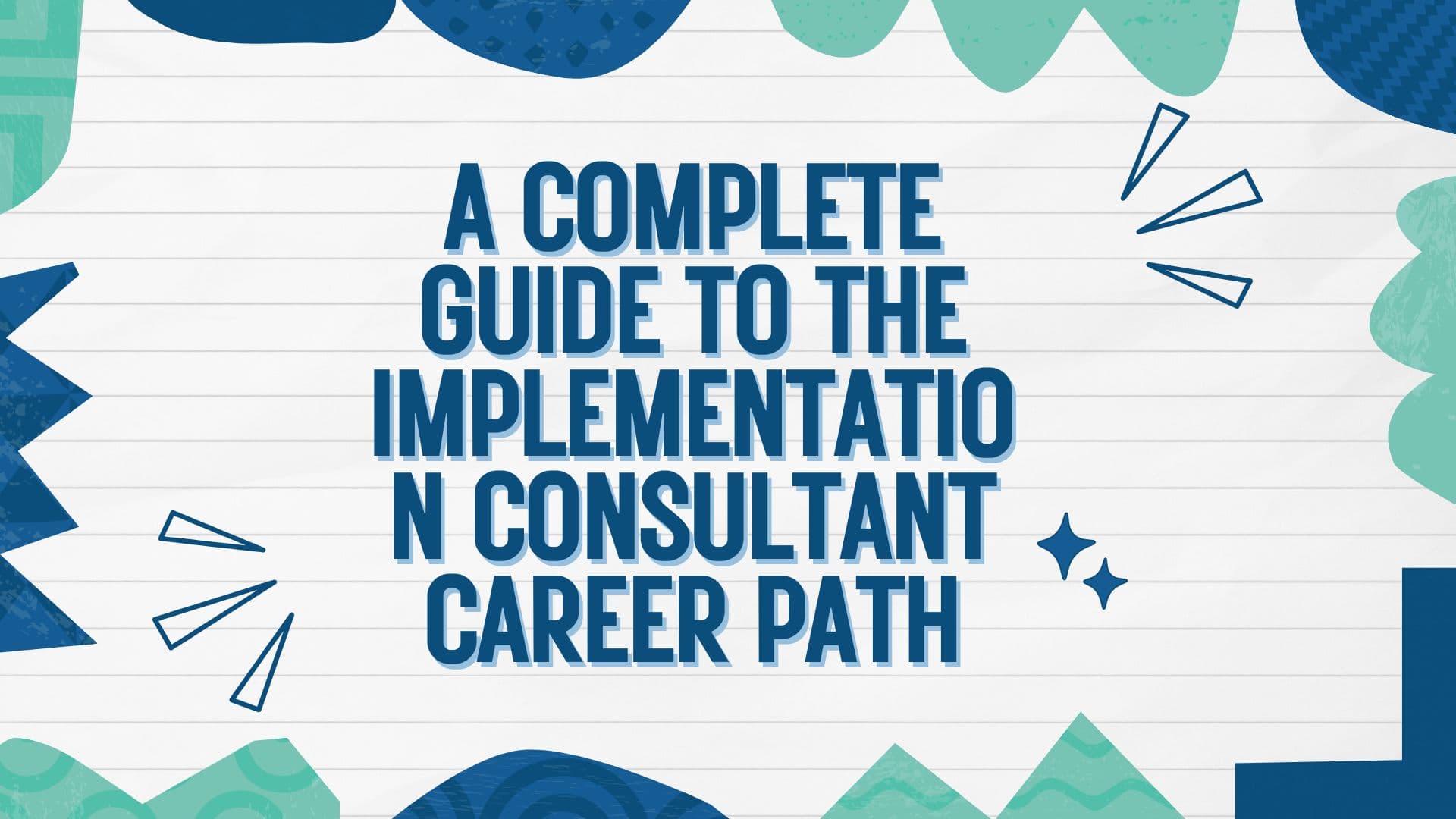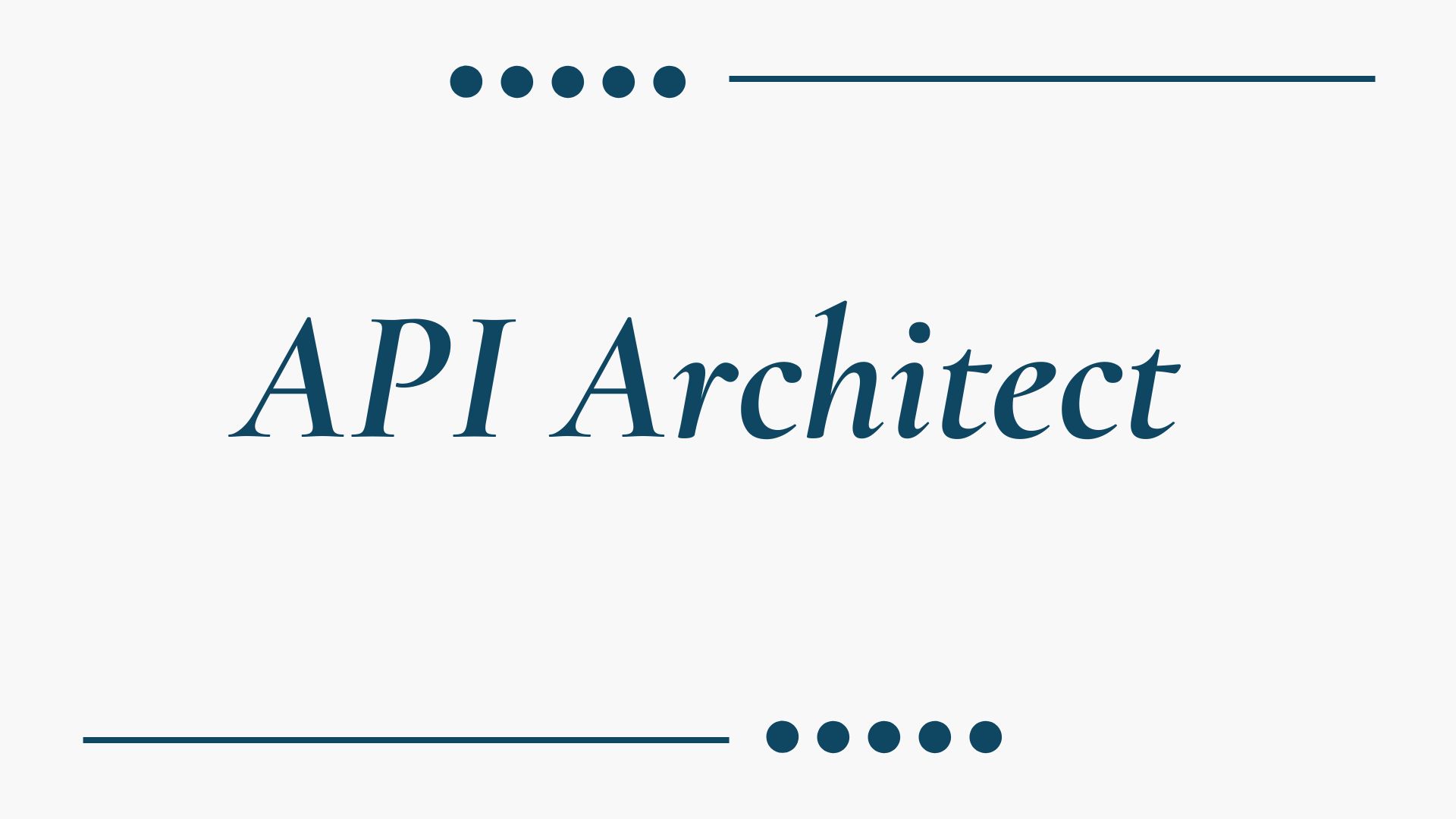TRUSTED BY THE SMARTEST TEAMS IN THE WORLD FOR CERTIFIED CANDIDATES
SPOTO Blogs
Useful learning materials to become certified IT personnel
-
- 982
- Emma
- 2025-06-04 17:11
-
- 1055
- Emma
- 2025-06-04 16:21
-
- 981
- Emma
- 2025-06-04 15:33
-
- 840
- SPOTO
- 2025-06-04 13:24
-
- 758
- SPOTO
- 2025-06-04 11:24
-
- 1780
- SPOTO
- 2025-06-03 11:30
-
- 2881
- SPOTO
- 2025-06-03 11:02
-
- 849
- SPOTO
- 2025-05-30 12:15
-
- 919
- SPOTO
- 2025-05-30 11:50
TRUSTED BY THE SMARTEST TEAMS IN THE WORLD FOR CERTIFIED CANDIDATES
SPOTO Blogs
Useful learning materials to become certified IT personnel
-
- 982
- Emma
- 2025-06-04 17:11
Table of Contents1. What is a Chief Technology Officer?2. What does a Chief Technology Officer do?3. Why become a Chief Technology Officer?4. How to become a Chief Technology Officer?5. Conclusion Are you searching for the right career opportunity? Or perhaps you're looking to climb higher in the tech industry? Maybe you've already considered becoming a Chief Technology Officer (CTO)—a role that combines power and responsibility and is increasingly attracting industry elites. But what exactly is a CTO? Why is this position so highly sought after? And how can you step into this prestigious executive role? Let's explore together. 1. What is a Chief Technology Officer? The Chief Technology Officer (CTO) is a high-level executive responsible for overseeing an organization's strategic use of technology and innovation. According to TechTarget, a CTO manages the company's IT strategy and ensures the advancement of technology aligns with the organization's long-term goals. In different companies, the CTO's responsibilities can vary. In some firms, the role focuses on product development and customer experience, driving innovation; in others, it leans more towards infrastructure management and cybersecurity. Regardless of the specific focus, a CTO usually needs a solid technical background, sharp business insight, and outstanding leadership skills. 2. What does a Chief Technology Officer do? Responsibilities and Role of a CTO As the "navigator" of a company's technology, a CTO's responsibilities can be quite broad, covering many aspects: Technology Strategy Development: Defining the company's technological direction and planning future tech initiatives. Driving Innovation: Keeping abreast of cutting-edge technologies such as AI, big data, and cloud computing, and exploring their applications within the enterprise. Product Optimization: Collaborating with product teams to develop user-centric innovations that enhance customer experience. Infrastructure Management: Ensuring the stability, security, and efficiency of IT architectures, including cloud services and internal networks. Team Leadership & Development: Building and managing technical teams, cultivating core talents. Security & Compliance: Managing internal security risks and ensuring regulatory compliance. In addition, many CTOs participate in digital transformation initiatives, approve technology investments, and forge strategic partnerships. 3. Why become a Chief Technology Officer? Average Salary In 2026, the average annual salary for CTOs in the US is around $264,557, with industries like finance, technology, and healthcare offering especially attractive compensation packages and additional performance-based incentives. Career Outlook As the technical core of a company, CTOs not only lead the organization towards innovation and digital transformation but also serve as a solid foundation for aspiring CEOs, opening doors to executive leadership roles and higher responsibilities. Diverse Job Content From R&D and innovation to infrastructure security and market collaboration, CTOs face multiple challenges and enjoy a sense of achievement through their impactful work, shaping the company's future and driving competitive advantages in a rapidly evolving tech landscape. Related Job Titles Chief Information Officer (CIO) Vice President of Technology Director of Engineering Technology Strategist Product Manager 4. How to become a Chief Technology Officer? Build a Strong Technical Foundation Bachelor's or higher degrees in Computer Science, Data Science, Information Technology, or related fields. Additionally, pursuing an MBA or other management degrees can help better understand corporate operations and strategic planning. Obtain Relevant Certifications Although a specific certification isn't a requirement to become a CTO, earning relevant professional certifications can help establish a strong professional image. Examples include: Project Management Certifications: PMI Agile, CompTIA Project+ Cybersecurity Certifications: CISSP, CEH Cloud Certifications: AWS, Azure, Google Cloud certifications Gain Rich Experience Successful CTOs usually have over 10 years of hands-on experience in IT, with deep expertise in software development, system architecture, or IT operations. Progress from roles like software engineer and systems architect to project manager, accumulating management and leadership skills. Stay Informed on Industry Trends Regularly read tech publications, participate in webinars, and follow industry leaders to stay updated on innovations like AI, cloud computing, and big data, ensuring your skills remain cutting-edge. Expand Your Network Engage in networking events, online forums, and mentorship programs to connect with industry professionals, share knowledge, and discover new opportunities that can accelerate your career growth. Additionally, the high-quality IT training courses offered by SPOTO can help you systematically master key skills, enhance your competitiveness, and accelerate your journey toward senior executive roles. 5. Conclusion Becoming a successful CTO not only requires outstanding technical expertise but also sharp business insight, strong leadership, and a continuous learning mindset. As a key decision-maker in technology, the CTO plays a pivotal role in innovation and transformation. If you're passionate about this role and eager to make an impact at the intersection of technology and management, start taking action today! Utilize the comprehensive courses provided by SPOTO to boost your skills and move confidently toward your high-level career goals. If you want to explore future technological trends or upgrade your skills, feel free to contact us for more information about our premium courses. The future belongs to those who are prepared—let's start your journey to the top today! -
- 1055
- Emma
- 2025-06-04 16:21
Table of Contents1. What is a Chief Product Officer?2. What does a Chief Product Officer do?3. Why become a Chief Product Officer?4. How to become a Chief Product Officer?5. Conclusion Are you looking to become a successful Chief Product Officer (CPO)? This role not only signifies the pinnacle of merging technology with business but also leads innovation and market growth for companies. In recent years, as businesses emphasize product strategy, the role of CPO has become increasingly vital. So, what exactly is a CPO? What are their responsibilities? How can you break into this high-level position? Let's explore everything step-by-step! 1. What is a Chief Product Officer? The Chief Product Officer (CPO) is a senior executive responsible for the overall product strategy and management within a company. Simply put, the CPO's duties encompass defining product vision, development, and marketing to ensure each product creates value for the business and meets customer needs. They play a central role in strategic decision-making, leading cross-functional teams (such as marketing, technology, and design) and coordinating resources to drive product innovation. Typically reporting directly to the CEO, the CPO acts as a bridge connecting business objectives with technological execution, helping the company maintain a competitive edge in a dynamic market. 2. What does a Chief Product Officer do? Core Responsibilities for a chief product officer Developing Product Strategy and Vision: Align long-term product development with market trends and customer insights. Leading Product Lifecycle Management: Overseeing everything from concept, design, development, and launch to ongoing maintenance and optimization. Driving Innovation and User Experience: Ensuring the products offer excellent UX/UI, fostering customer loyalty and differentiation. Market Research and Competitive Intelligence: Analyzing industry movements and future trends to refine product positioning and pricing. Cross-Functional Collaboration: Coordinating with marketing, sales, and engineering teams to align goals and facilitate efficient operations. Skills for a chief product officer Strategic Thinking and Technical Insight: Ability to craft forward-looking product strategies integrating market and technology trends. Leadership and Communication: Inspiring teams, building consensus across departments. Data Analysis: Leveraging data to drive decision-making and tracking product performance. Customer Centricity: Deep understanding of customer needs to craft compelling user experiences. 3. Why become a Chief Product Officer? Career Benefits Becoming a CPO means occupying a strategic leadership position—having significant influence over the company's future trajectory. It also offers lucrative compensation. According to data, the average annual salary for a CPO in the U.S. ranges between $246,480 and $295,980, often accompanied by bonuses and stock options, along with ample opportunity for career growth. Career Outlook While specific growth statistics for CPOs aren't widely published, senior executive roles are generally stable, and demand for strategic, innovative product leaders is expected to rise continuously. Skilled CPOs who excel at driving innovation and market insights are highly sought after by large enterprises. Related Job Titles Vice President of Product Director of Product Management Head of Product Product Strategy Lead 4. How to become a Chief Product Officer? Obtain a Foundational Certification: PMP Since the CPO is an executive-level role, strong project management skills are essential. Earning the Project Management Professional (PMP) certification from PMI (Project Management Institute) provides a solid foundation in managing complex projects, coordinating teams, and executing strategic initiatives. PMP certification verifies your ability to lead high-stakes projects with discipline and efficiency—traits crucial for a CPO. Gain Extensive Product Management Experience Once PMP is achieved, build a robust portfolio of experience in product management roles. Start as a Product Manager, then progressively take on leadership roles such as Senior Product Manager or Director of Product. The typical pathway involves Developing expertise in product development, market analysis, user experience, and lifecycle management. Leading successful product launches and managing cross-functional teams. Demonstrating strategic thinking and the ability to align product goals with overall business objectives. Enhance Strategic and Leadership Skills Beyond project management, aspiring CPOs should develop capabilities in corporate strategy, business development, and leadership. Engage in strategic planning, participate in executive-level decision-making, and hone your skills in navigating organizational change. Pursue Advanced Education and Continuous Learning Advanced degrees like an MBA can significantly boost your understanding of business operations and leadership. Additionally, completing certifications related to product management or market-driven product strategies can make you more competitive. Build Cross-Functional and Industry Experience A successful CPO must coordinate seamlessly across departments—engineering, marketing, and sales—to drive unified goals. Seek opportunities to work on cross-functional teams, market analysis, customer insights, and strategic planning. Developing a broad organizational perspective is key to stepping into the C-level. 5. Conclusion Becoming a successful Chief Product Officer requires clear planning, a strategic mindset, and a commitment to continuous learning. Starting with a strong foundation like PMP certification, gaining extensive experience, honing leadership abilities, and expanding your strategic vision—these steps will pave your way to the top. If you're eager to advance your career towards becoming a CPO, explore SPOTO's professional certification programs—they're designed to help you acquire the skills, knowledge, and credentials needed to reach the executive suite! -
- 981
- Emma
- 2025-06-04 15:33
Table of Contents1. What is a Service Delivery Manager?2. What does a Service Delivery Manager do?3. Why become a Service Delivery Manager?4. How to become a Service Delivery Manager?5. Conclusion Are you looking for a dynamic career with growth opportunities? Meet the Service Delivery Manager! In today's fast-paced business world, delivering excellent service isn't just a luxury—it's a necessity. But have you ever wondered who is behind ensuring that clients receive seamless, high-quality services consistently? The answer is the Service Delivery Manager. If you're seeking a role that combines leadership, technical expertise, and customer-focused strategies, this might just be your next big career move. 1. What is a Service Delivery Manager? A Service Delivery Manager is a pivotal figure who oversees the delivery of services to clients, ensuring efficiency, quality, and customer satisfaction. They act as a bridge between technical teams and clients, managing service processes, resolving issues, and continuously improving service standards. Crucially, SDMs are client-facing professionals responsible for maintaining excellent relationships and ensuring that the organization's service commitments are met or exceeded. In essence: They are the orchestrators of flawless service delivery, nurturing client relations, tackling challenges, and improving overall operational performance. 2. What does a Service Delivery Manager do? Job Description of a Service Delivery Manager The duties of an SDM span a wide spectrum, combining technical oversight with administrative leadership: Service Management: Monitoring IT support functions, maintaining service performance levels, and implementing improvement plans. Client Relations & Meeting Support: Ensuring meetings run smoothly, supporting conference tools, and educating staff on their use. Performance & Quality Control: Analyzing service performance, overseeing strategic improvements, and reporting to senior management. Technical Oversight: Supervising hardware and software standards and security protocols and applying updates in a timely manner. Moreover, SDMs coordinate with project and technical teams to troubleshoot issues, optimize processes, and ensure all services align with the company's goals and client expectations. Skills needed to succeed as a Service Delivery Manager Success in this role hinges on a blend of soft and hard skills: Excellent communication and interpersonal skills for client interaction. Leadership and team management to motivate staff. Technical knowledge of IT systems, security, and supporting tools. Problem-solving and conflict resolution prowess. Project management skills to oversee multiple initiatives efficiently. Financial acumen for budgeting and resource planning. Continuous improvement mindset for operational excellence. To build these skills, enrolling in specialized courses can fast-track your career. For instance, SPOTO offers industry-recognized certifications like ITIL 4 Foundation, which is vital for understanding best practices in IT Service Management. 3. Why become a Service Delivery Manager? The appeal of SDM roles extends beyond responsibility: Competitive Salary: In many regions, SDMs earn between $43,138 and over $140,000/month, depending on experience and location. Job Outlook: As companies increasingly prioritize quality service, the demand for skilled SDMs is expected to grow steadily. Career Advancement: SDMs often progress into senior management or specialized roles such as IT Directors, Operations Managers, or Customer Experience Heads. Job Titles Related to Service Delivery Manager Service Operations Manager Client Services Manager IT Service Manager Customer Success Manager 4. How to become a Service Delivery Manager? Breaking into this flourishing career involves Educational Foundation A bachelor's degree in fields such as business administration, information technology, computer science, or electrical engineering provides essential theoretical knowledge, critical thinking skills, and a solid foundation for understanding service management concepts. Gaining Experience Accumulating 1-3 years of practical experience in customer service, project management, or IT support helps develop real-world skills, understanding client needs, troubleshooting issues, and managing multiple tasks effectively. Certifications and Training Earning industry-recognized certifications like ITIL 4 Foundation demonstrates your expertise in best practices for service management and boosts your professional credibility, making you more competitive in the job market. Developing Core Skills Focus on enhancing leadership, effective communication, critical problem-solving, and technical proficiency to succeed as an SDM, ensuring you can lead teams, resolve conflicts, and adapt to evolving technological environments. For those looking to accelerate their learning and stand out, SPOTO's comprehensive courses in IT Service Management can provide practical knowledge and certification paths to boost your resume. 5. Conclusion A career as a Service Delivery Manager is perfect for those who thrive on multitasking, solving complex challenges, and fostering excellent client relationships. It offers not only substantial earning potential but also promising growth in a future-proof industry. If you're determined to land a role in this dynamic field, investing in specialized training—such as SPOTO's courses—can be your game changer. With the right knowledge, skills, and certifications, you'll be well on your way to becoming a key contributor to your organization's success. Ready to embark on this rewarding journey? Explore SPOTO's certification programs today and take a step closer to your career as a Service Delivery Manager! -
- 840
- SPOTO
- 2025-06-04 13:24
Table of Contents1. What is an Escalation Engineer?2. What does an Escalation Engineer do?3. Career Insights: Salary, Outlook & Related Roles4. What Are the Qualifications to Become an Escalation Engineer? Escalation Engineers are highly skilled individuals responsible for handling complex, sensitive or urgent customer issues that cannot be resolved by the front-line team.This article will introduce you to what an Escalation Engineer is, the career information and prospects of an Escalation Engineer and the necessary conditions to become an Escalation Engineer. 1. What is an Escalation Engineer? Escalation Engineers are highly skilled individuals responsible for handling complex, sensitive or urgent customer issues that cannot be resolved by the front-line team. 2. What does an Escalation Engineer do? Escalation engineers are responsible for handling complex, sensitive or urgent customer issues that the front-line team cannot solve. Specifically, their work includes: First, managing hot customer escalations and promoting problem resolution, conducting in-depth analysis of technical issues, finding out the root causes, and keeping all relevant parties informed. Secondly, working with teams around the world to promote the resolution of escalation issues, and supporting process improvements for functional teams such as development, quality, and product management, and providing expert support for hardware-related customer issues reported by the global technical support team. Finally, proactively learning new features and providing TOI before official release, as well as providing a technical contact point in partnerships with other companies. 3. Career Insights: Salary, Outlook & Related Roles (1) Escalation Engineer Salary According to data from ZipRecruiter on May 27, 2026, the average annual salary for an upgrade engineer in the United States is $97,063. That's about $46.66 per hour. That's $1,866 per week or $8,088 per month. The highest annual salary can be as high as $136,500 and as low as $46,500, but most upgrade engineers currently make between $82,500 and $110,000, with the highest earners in the United States making $132,000 per year. The average salary range for upgrade engineers varies widely (up to $27,500), which means there may be many opportunities for advancement and pay increases depending on skill level, location, and years of experience. (2) Job Outlook of Escalation Engineer According to the U.S. Bureau of Labor Statistics, overall employment in the construction and engineering industries is expected to grow faster than the average for all occupations between 2023 and 2033. Due to job growth and the need to replace workers who permanently leave the industry, these industries are expected to have an average of about 195,000 job vacancies each year. The rising demand for talent in these fields also means that the demand for Escalation Engineers will rise, and the overall employment outlook for Escalation Engineers is optimistic. (3) Similar Occupations Technical Support Engineer Support Specialist Desktop Support Engineer Software Support Engineer Application Support Engineer Help Desk Technician Systems Engineer IT Support Engineer Network Engineer DevOps Engineer Cloud Engineer Support Engineer 4. What Are the Qualifications to Become an Escalation Engineer? (1) Obtain a Bachelor's Degree During the job search process, employers tend to recruit candidates with relevant majors. When hiring Escalation Engineers, employers tend to recruit candidates with a bachelor's degree in a specific field such as computer science, engineering and related subjects. Of course, a higher degree can help career development. In addition, candidates with additional qualifications such as software development, network administration and database management experience are usually more favored. (2) Develop professional skills The position of Escalation Engineer generally requires the following core skills: First, in terms of operating systems and network protocols, escalation engineers are required to have experience in using Linux, Unix or FreeBSD systems, be familiar with protocols such as HTTP, SMTP, FTP, DNS, and be able to use tools such as Ping, Traceroute, MTR, etc. to troubleshoot network problems. Secondly, they need to have knowledge and skills related to network security, such as knowledge of SSL/TLS, VPN, firewall, IDS/IPS and other technologies, and be able to handle complex security issues. In addition, authentication systems (such as LDAP, Microsoft AD) and VPN technologies (such as IPSec) are also requirements for this position. Finally, escalation engineers need to be familiar with Shell scripts and Python programming languages, be able to develop automation tools to improve work efficiency, and write technical support documents. (3) Earn Industry Certifications Obtaining a certification that is highly recognized by the industry can prove your professional ability and ability to perform the position, and can also enhance your competitiveness in the workplace. Therefore, we recommend that you obtain the Cisco Certified Specialist – Data Center Application Services Certification, offered by Cisco, is a prestigious credential recognized worldwide. This certification validates your skills in deploying and managing application services (such as load balancing, security policies, automation scripts, etc.) under the Cisco data center technology stack, and is applicable to enterprise-level IT infrastructure, cloud platforms, and DevOps scenarios. -
- 758
- SPOTO
- 2025-06-04 11:24
Table of Contents1. What is an Application Delivery Engineer?2. What does an Application Delivery Engineer do?3. Career Insights: Salary, Outlook & Related Roles4. What Are the Qualifications to Become an Application Delivery Engineer? Application Delivery Engineer refers to a professional technical engineer who is responsible for providing software application services to customers and, in the process, designs, plans and maintains application systems.This article will introduce you to what an Application Delivery Engineer is, the career information and prospects of an Application Delivery Engineer and the necessary conditions to become an Application Delivery Engineer. 1. What is an Application Delivery Engineer? Application Delivery Engineer refers to a professional technical engineer who is responsible for providing software application services to customers and, in the process, designs, plans and maintains application systems. 2. What does an Application Delivery Engineer do? The Application Delivery Engineer is responsible for the delivery and continuous improvement of software implementation services for customers. The core focus of this position is to deliver applications to remote business users across environments. The job content of this position includes planning, designing, delivering and supporting multiple projects, and ensuring the efficiency and timeliness of the work. The Application Delivery Engineer is responsible for providing technical advice and guidance to internal teams and customers from the perspective of customer projects. They usually work independently to install and configure a range of technical solutions, but the project management team and other teams from other teams in the company will provide support to the Application Delivery Engineer to ensure that customers get the products and services they expect. 3. Career Insights: Salary, Outlook & Related Roles (1) Application Delivery Engineer Salary Based on anonymous responses from U.S. Application Engineer employees collected by Built In. The average annual salary for an Application Engineer in the U.S. is $121,988. The average additional cash compensation for an Application Engineer in the U.S. is $26,172. The average total compensation for an Application Engineer in the U.S. is $148,160. (2) Job Outlook of Application Delivery Engineer According to the U.S. Bureau of Labor Statistics, overall employment of software developers, quality assurance analysts, and testers is expected to grow 17% from 2023 to 2033, much faster than the average for all occupations. Job openings for software developers, quality assurance analysts, and testers are expected to average about 140,100 per year over the next decade. Many of these job openings are expected to be filled by people who change careers or exit the workforce (e.g., by retirement). (3) Similar Occupations DevOps Engineer Technical Program Manager Site Reliability Engineer Software Engineer Project Manager Business Analyst Technical Writer Load Balancing Engineer ADC Engineer Security Engineer 4. What Are the Qualifications to Become an Application Delivery Engineer? (1) Obtain a Bachelor's Degree In the job search process, employers tend to recruit candidates with relevant majors. The degree requirements for Application Delivery Engineer are usually a bachelor's degree in computer science, software engineering, information technology or related fields. Of course, a higher degree can help career development. (2) Develop professional skills Application engineers should have solid technical capabilities, including proficiency in programming languages ​​such as Java, C++, Python, SQL, database management and optimization, API integration, cloud platforms (such as AWS, Azure), system architecture design, front-end development (such as HTML, CSS, JavaScript), version control (Git) and automated testing tools. They should also have good problem-solving skills, teamwork spirit, project management skills, communication skills, technical documentation writing and customer support experience. These skills will help them pass the resume screening system when applying for a job and increase their chances of an interview. (3) Earn Industry Certifications Obtaining a certification that is highly recognized by the industry can prove your professional ability and ability to perform the position, and can also enhance your competitiveness in the workplace. Therefore, we recommend that you obtain the Cisco Certified Specialist – Data Center Application Services Certification, offered by Cisco, is a prestigious credential recognized worldwide. This certification validates your skills in deploying and managing application services (such as load balancing, security policies, automation scripts, etc.) under the Cisco data center technology stack, and is applicable to enterprise-level IT infrastructure, cloud platforms, and DevOps scenarios. -
- 1780
- SPOTO
- 2025-06-03 11:30
Table of Contents1. What is an Implementation Consultant?2. What does an Implementation Consultant do?3. Career Insights: Salary, Outlook & Related Roles4. What Are the Qualifications to Become an Implementation Consultant? Implementation consultants are third-party contractors hired by companies to deploy and integrate specific solutions or software into a client's business environment and are responsible for managing large projects.This article will introduce you to what an Implementation Consultant is, the career information and prospects of an Implementation Consultant and the necessary conditions to become an Implementation Consultant. 1. What is an Implementation Consultant? Implementation consultants are third-party contractors hired by companies to deploy and integrate specific solutions or software into a client's business environment and are responsible for managing large projects. 2. What does an Implementation Consultant do? Implementation consultants are responsible for setting up, configuring, and testing new software systems before deployment to ensure that there are no functional issues or disruptions to daily business operations. At the same time, they must consider the customer's current business processes and interface requirements to configure our software to meet their specific needs. Specifically, they have the following job responsibilities: setting up, configuring, and testing new systems before deployment; analyzing the customer's business processes and interface requirements; assisting with end-user training; providing user support and resolving issues. 3. Career Insights: Salary, Outlook & Related Roles (1) Implementation Consultant Salary According to ZipRecruiter data on May 26, 2026, the average annual salary for an Implementation Consultant in California is $111,493. That works out to about $53.60 per hour. That's $2,144 per week or $9,291 per month. Salaries range from as high as $188,499 to as low as $43,917, but most Implementation Consultant salaries currently range from $72,000 to $146,100, with the highest earners making $172,214 per year in California. The average salary range for an Implementation Consultant varies widely (as much as $74,100), which means there may be many opportunities for advancement and increased pay based on skill level, location, and years of experience. (2) Job Outlook of Implementation Consultant According to data from the Zippia website, the expected growth rate for implementation consultant positions is 11% from 2018 to 2028, and approximately 108,400 new implementation consultant positions will appear in the next decade. Although there are currently more than 7,600 implementation consultants in the United States, there are 70,450 active implementation consultant job vacancies in the United States. Overall, the employment outlook for implementation consultants is relatively optimistic. (3) Similar Occupations IT Infrastructure Project Manager Systems Engineering Manager Infrastructure Operations Manager System Administrator/Senior Infrastructure Manager Network Administrator Database Administrator Security Manager Functional Consultant Business Analyst Product Implementation Specialist Change Management Consultant 4. What Are the Qualifications to Become an Implementation Consultant? (1) Obtain a Bachelor's Degree During the job search, employers tend to recruit candidates with relevant majors. The degree requirement for implementation consultants is usually a bachelor's degree in a related field, such as computer science, business administration, or information technology. For example, Teal points out that a bachelor's degree in information technology, computer science, business administration, or a related field is often popular. Of course, a higher degree can help career advancement. (2) Develop professional skills Whether through schooling, hands-on experience, or community involvement, upskilling is essential. Here are some relevant job skills that help implementation consultants improve: First, implementation consultants need to keep up with the latest software and tools in the industry. Get hands-on experience with cloud platforms, CRM systems, and enterprise resource planning (ERP) software, which are currently in high demand. And with the growing security concerns, it is increasingly important to understand cybersecurity best practices and how to incorporate them into your implementation. Second, implementation consultants need to continuously improve their advanced data analysis skills and develop the ability to interpret and utilize data analysis to drive successful implementation strategies and provide actionable insights to clients. Furthermore, it is necessary to deepen expertise in project management frameworks such as Scrum, Kanban, or Six Sigma to improve project delivery and efficiency. Finally, implementation consultants need to strengthen communication and stakeholder management, and improve their ability to clearly communicate complex ideas and manage stakeholder expectations through targeted training and practical practice. And regularly solicit feedback from clients and peers, and reflect on your project experience to identify areas for improvement and personal growth. (3) Earn Industry Certifications Obtaining a certification that is highly recognized by the industry can prove your professional ability and ability to perform the position, and can also enhance your competitiveness in the workplace. Therefore, we recommend that you obtain the Cisco Meraki Solutions Specialist Certification The Cisco Meraki Solutions Specialist Certification, offered by Cisco, is a prestigious credential recognized worldwide. It validates an individual's expertise in managing and deploying Meraki solutions. This certification signifies a professional’s ability to configure and troubleshoot Meraki networks and devices effectively. Certified Cisco Meraki Solutions Specialists play a crucial role in maintaining the efficiency and reliability of network infrastructures using Meraki technology. -
- 2881
- SPOTO
- 2025-06-03 11:02
Table of Contents1. What is an IT Infrastructure Specialist?2. What does an IT Infrastructure Specialist do?3. Career Insights: Salary, Outlook & Related Roles4. What Are the Qualifications to Become an IT Infrastructure Specialist? IT infrastructure specialists are IT professionals who are responsible for designing, maintaining and coordinating the hardware, software and network systems of an enterprise or organization.This article will introduce you to what an IT Infrastructure Specialist is, the career information and prospects of an IT Infrastructure Specialist and the necessary conditions to become an IT Infrastructure Specialist. 1. What is an IT Infrastructure Specialist? IT infrastructure specialists are IT professionals who are responsible for designing, maintaining and coordinating the hardware, software and network systems of an enterprise or organization. 2. What does an IT Infrastructure Specialist do? The responsibilities of an it infrastructure specialist include the following: First, they need to develop functional and technical requirements and specifications, that is, implement defined processes and practices to manage systems, software, and networks to ensure consistent and reliable operation to meet business needs. Secondly, manage accounts, documents, and access rights to systems and devices, monitor the performance, capacity, availability, maintainability, and recoverability of installed systems, and diagnose, troubleshoot, and resolve system problems and/or respond to outages. Finally, ensure that the rigorous design and development of custom programs complies with information security/information assurance policies, principles, and practices. 3. Career Insights: Salary, Outlook & Related Roles (1) IT Infrastructure Specialist Salary According to ZipRecruiter data on May 26, 2026, the average annual salary for IT Infrastructure Specialists in the United States is $84,361. That's $40.56 per hour. That's $1,622 per week or $7,030 per month. Annual salaries can be as high as $146,500 and as low as $31,000, but most IT Infrastructure Specialists currently make between $65,000 and $98,500, with top earners making as much as $132,000 per year across the United States. The average salary range for IT Infrastructure Specialists varies widely (up to $33,500), which means there may be many opportunities for advancement and pay increases based on skill level, location, and years of experience. (2) Job Outlook of IT Infrastructure Specialist As one of the occupations in computer and information technology, IT Infrastructure Specialist has a strong and optimistic job outlook. According to data from the U.S. Bureau of Labor Statistics, the overall employment growth rate of computer and information technology occupations is expected to be much faster than the average for all occupations between 2023 and 2033. Due to job growth and the need to replace workers who permanently leave this occupation, it is expected that these occupations will have an average of about 356,700 job vacancies each year. (3) Similar Occupations System Administrator Network Engineer IT Support Specialist Infrastructure Engineer DevOps Engineer Solutions Architect IT Infrastructure Manager IT Field Engineer Enterprise Support Specialist IT Support Engineer 4. What Are the Qualifications to Become an IT Infrastructure Specialist? (1) Obtain a Bachelor's Degree In the job search process, employers tend to recruit candidates with relevant majors. The degree requirements for IT Infrastructure Specialist are usually a bachelor's degree in a related field such as computer science, engineering, or information technology. Of course, a higher degree can help career development. (2) Develop professional skills it infrastructure specialistIT is a key position in the information technology department of an enterprise. This position requires a number of technical capabilities, including operating system management (such as Windows Server, Linux), network configuration and maintenance (such as TCP/IP, VPN, VLAN), virtualization technology (such as VMware, Hyper-V), cloud platform operations (such as AWS, Azure) and database management. In addition, it is necessary to have practical experience in backup and disaster recovery mechanisms and understand basic information security technologies (such as firewalls and intrusion detection systems). In addition to technical capabilities, IT infrastructure specialists also need to have excellent problem-solving skills, communication and coordination skills, project management experience and the ability to quickly learn and adapt to new technologies. Common related certifications include CompTIA A+, Network+, Security+, Cisco CCNA, Microsoft Azure certification and ITIL Foundation. (3) Earn Industry Certifications Obtaining a certification that is highly recognized by the industry can prove your professional ability and ability to perform the position, and can also enhance your competitiveness in the workplace. Therefore, we recommend that you obtain the Cisco Meraki Solutions Specialist Certification.The Cisco Meraki Solutions Specialist Certification, offered by Cisco, is a prestigious credential recognized worldwide. It validates an individual's expertise in managing and deploying Meraki solutions. This certification signifies a professional’s ability to configure and troubleshoot Meraki networks and devices effectively. Certified Cisco Meraki Solutions Specialists play a crucial role in maintaining the efficiency and reliability of network infrastructures using Meraki technology. -
- 849
- SPOTO
- 2025-05-30 12:15
Table of Contents1. What is a Video Conferencing Engineer?2. Why become a Video Conferencing Engineer?3. Career Insights: Salary, Outlook & Related Roles4. What Are the Qualifications to Become a Video Conferencing Engineer? 1. What is a Video Conferencing Engineer? Video conferencing engineers are professional technicians responsible for the design and maintenance of all audio-visual rooms, video conferencing equipment, and web/audio conferencing solutions. 2. Why become a Video Conferencing Engineer? As more and more companies rely on virtual meetings to connect global teams, the demand for video conferencing engineers is increasing. Becoming a video conferencing engineer can put you at the forefront of communication technology, supporting companies to implement and maintain advanced video conferencing systems to achieve seamless remote collaboration. Secondly, the work environment of video conferencing engineers is diverse and dynamic, with access to the latest audio-visual technology, network infrastructure, and collaboration platforms. Finally, this position has good career development space and can be promoted to senior technical positions, solution architects, or management positions in the future. 3. Career Insights: Salary, Outlook & Related Roles (1) Video Conferencing Engineer Salary According to ZipRecruiter's May 22, 2026 data, the average annual salary for video conferencing engineers in the United States is $82,968. That's about $39.89 per hour. That's $1,595 per week or $6,914 per month. Annual salaries can be as high as $140,500 and as low as $11,500, but most video conferencing engineers currently make between $70,000 and $118,500 per year, with top earners making as much as $137,000 per year across the United States. The average salary range for video conferencing engineers varies widely (as high as $48,500), which means there may be many opportunities for advancement and pay increases based on skill level, location, and years of experience. (2) Job Outlook of Video Conferencing Engineer The Job Outlook of Video Conferencing Engineer is strong, and the market demand for this type of talent is rising. According to the U.S. Bureau of Labor Statistics, the overall employment of broadcast, sound, and video technicians is expected to grow by 3% from 2023 to 2033, which is about the same as the average growth rate for all occupations. It is expected that there will be an average of 12,900 job openings per year for broadcast, sound, and video technicians over the next decade. Many of these job openings are expected to fill those who change careers or exit the labor market (such as retirement). (3) Similar Occupations AV Engineers Sound Engineers Broadcast Technicians Network Engineers Unified Communications Engineers Event Technology Specialists Collaboration Engineers AV Support Technicians 4. What Are the Qualifications to Become a Video Conferencing Engineer? (1) Obtain a Bachelor's Degree In the job search process, employers tend to recruit candidates with relevant majors. The degree requirements for Video Conferencing Engineer are usually a bachelor's degree in a related field such as computer science, engineering, or information technology. Of course, a higher degree can help career development. (2) Develop professional skills Video conferencing engineers often require job applicants to have the following professional skills: First, job applicants need to have relevant work experience in information technology within large corporate organizations. Second, they need to have experience in the design, implementation, and upgrade of AV equipment and control systems. Third, job applicants should have extensive experience in Skype/Teams conference and voice solutions (O365 Online). (3) Earn Industry Certifications Obtaining a certification that is highly recognized by the industry can prove your professional ability and ability to perform the position, and can also enhance your competitiveness in the workplace. Therefore, we recommend that you obtain the Cisco 500-301 CCS(Cisco Cloud Collaboration Solutions).The Cisco 500-301 CCS certification demonstrates that you have solid technical skills and practical experience in designing, implementing and managing cloud-based collaboration solutions to help enterprises achieve efficient, flexible and secure communication and collaboration. -
- 919
- SPOTO
- 2025-05-30 11:50
Table of Contents1. What is an API Architect ?2. What does an API Architect do?3. Career Insights: Salary, Outlook & Related Roles4. What Are the Qualifications to Become an API Architect ? 1. What is an API Architect ? API Architect refers to a senior project management role that leads a software development team or organization to design, implement, and maintain the enterprise's API framework to ensure the scalability and secure operation of the API framework. 2. What does an API Architect do? The work of API framework engineers mainly revolves around the API-first strategy. In enterprises, they are often responsible for defining API standards, guidelines, and best practices for development teams to design and implement scalable and secure API architectures for enterprises. Secondly, they work with stakeholders to collect requirements and transform them into API solutions. If there is an existing API infrastructure, it should be managed and evaluated, and corresponding improvement suggestions should be made to ensure that the API solution meets security, performance, and reliability standards. Finally, API framework engineers need to understand emerging API technologies and industry trends and provide technical leadership and guidance to development teams. 3. Career Insights: Salary, Outlook & Related Roles (1) API Architect Salary According to data from the ZipRecruiter website on May 22, 2026, the average hourly wage for API architects in the United States is $72.38. The hourly wage can be as high as $91.59 and as low as $42.79, but currently most API architects in the United States earn between $67.31 and $77.88. The average salary range for API architects does not vary much (about 10). (2) Job Outlook of API Architect As more and more global companies adopt API-first strategies and the demand for API-related personnel increases, the demand for skilled API architects continues to increase. In the future, with the continuous development and application of APIs, related positions will continue to increase. (3) Similar Occupations Integration Architect Solutions Architect Enterprise Architect Backend Engineer Software Architect Platform Engineer DevOps Engineer Cloud Solutions Architect Security Architect Technical Product Manager 4. What Are the Qualifications to Become an API Architect ? (1) Obtain a Bachelor's Degree In the job search process, employers tend to recruit candidates with relevant majors. The degree requirements for API Architect are usually a bachelor's degree in computer science, information technology or related fields.Of course, a higher degree can help career development. (2) Develop professional skills The main job skills required of an API framework engineer are as follows: in-depth understanding of RESTful API, microservices and integration patterns; experience with API management platforms and gateways; familiarity with security protocols such as OAuth, JWT and API keys; excellent communication and interpersonal skills; teamwork ability and the ability to lead technical discussions and guide development teams; strong analytical and problem-solving skills. (3) Earn Industry Certifications Obtaining a certification that is highly recognized by the industry can prove your professional ability and ability to perform the position, and can also enhance your competitiveness in the workplace. Therefore, we recommend that you obtain the DevNet Expert certification, on the one hand because Cisco certification enjoys a high degree of recognition in this field, and on the other hand because this certification can prove that you have the ability to design and develop advanced network automation solutions throughout the network life cycle from concept and deployment to operation and optimization.














